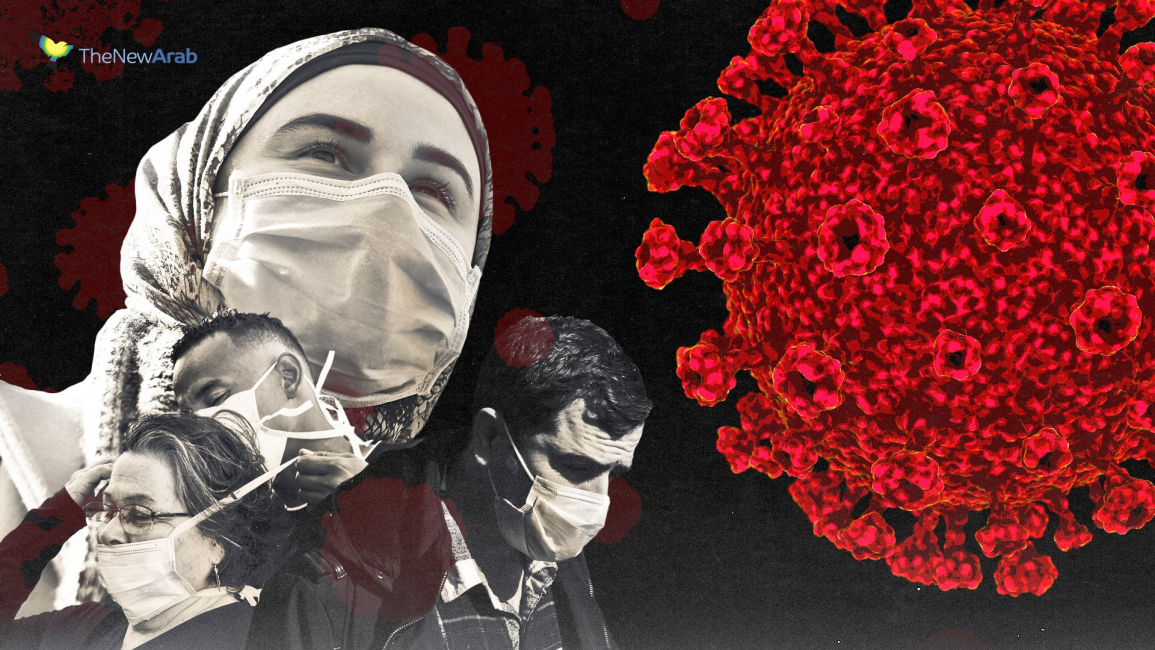The Middle East at war with coronavirus: Top stories from 9 May
1. Iran reports more than 1,500 new virus cases
Iran warned on Saturday that coronavirus infections were rising in the southwest despite falls in other regions, as it announced more than 1,500 new confirmed cases.
"All provinces are showing a gradual drop in new infections... except for Khuzestan, where the situation is still concerning," health ministry spokesman Kianoush Jahanpour said in televised remarks.
The health ministry stopped publishing provincial figures for the coronavirus last month.
It has instead opted for a colour-coded system of white for low-risk parts of the country, yellow for medium-risk and red for high-risk areas.
Latest reports have shown Khuzestan red along with a few other provinces, including the capital Tehran and the Shiite clerical centre of Qom, where Iran reported its first cases in February.
Read more here.
 |
| Click to enlarge |
2. Kuwait imposes 20-day 'total curfew' from May 10 to curb coronavirus
Kuwait will enact a "total curfew" from 4pm (1300 GMT) on Sunday through to May 30 to help to curb the spread of the new coronavirus, the Information Ministry said on Twitter. Further details of the curfew will be announced soon, it said.
Kuwait on April 20 expanded a nationwide curfew to 16 hours a day, from 4pm to 8am, and extended a suspension of work in the public sector, including government ministries, until May 31.
On Friday the Gulf state announced 641 new coronavirus cases and three deaths, bringing its total number of confirmed cases to 7,208, with 47 deaths.
The number of cases in the six Gulf Arab states has risen steadily to almost 86,000, with 486 deaths, despite containment measures including curfews, the grounding of passenger flights and the closure of most public venues.
Twitter Post
|
3. Sudan extends Khartoum curfew to slow virus
Sudan extended a curfew in and around the capital Khartoum for 10 days from Saturday as coronavirus cases mount, state media reported.
The Sudanese health ministry has so far reported 1,111 Covid-19 cases including 59 deaths, with Khartoum state hardest hit.
Authorities initially imposed a curfew in Khartoum for three weeks from April 18. With its twin city Omdurman, the capital has a population of more than five million.
"The health emergency committee decided to extend the curfew in Khartoum state starting Saturday and for 10 days," the official SUNA news agency reported late on Friday.
Travel between the capital and other Sudanese states will be banned, the news agency added.
Since March, Sudan has imposed a state of emergency, shuttering schools and universities, and almost totally closing its borders.
The country's dilapidated healthcare system is already strained by acute shortages of medicines and medical supplies.
4. Turkish doctors turn detectives to track virus
In full protective gear, two doctors climb the stairs four at a time. Their first task of the day: to test a woman who has had contact with a coronavirus patient in Istanbul.
Visibly perturbed by the appearance of men in white bodysuits on her landing, the resident in the populous Fatih district answers their questions before she is tested. She will get her results the next day.
In Turkey, nearly 6,000 teams of "tracers" - all health professionals - track potential Covid-19 cases 24 hours a day by identifying and following up with people who have had contact with patients.
By helping find new cases who are then quickly isolated and treated, the Turkish government says tracing has helped to contain the outbreak and limit the number of deaths.
Read more here.
5. Lebanon rooftops bustle as virus shifts life upstairs
Usually the kingdom of water tanks and satellite dishes, Lebanon's rooftops have recently been graced by unlikely scenes of locked-down residents fleeing their flats.
Deprived of rehearsal rooms or workshops by restrictions imposed to stem the spread of the novel coronavirus, or just needing some extra breathing space, many people have found solace without leaving their buildings.
Several have ventured onto their roofs to escape the lockdown after taking to the streets in recent months as part of nationwide protests against rulers deemed corrupt and inept.
AFP photographer Joseph Eid spent weeks scaling staircases to see how people have taken over underused rooftops, whose only visitors used to be caretakers, plumbers and electricians.
Read more here.
Follow us on Facebook, Twitter and Instagram to stay connected

![Morocco Israel [Getty] Morocco Israel [Getty]](/sites/default/files/styles/image_330x185/public/media/images/AE22E2B5-5046-42CE-AA20-F9869E5A1E9B.jpg?h=d1cb525d&itok=9YeA_Yk1)

